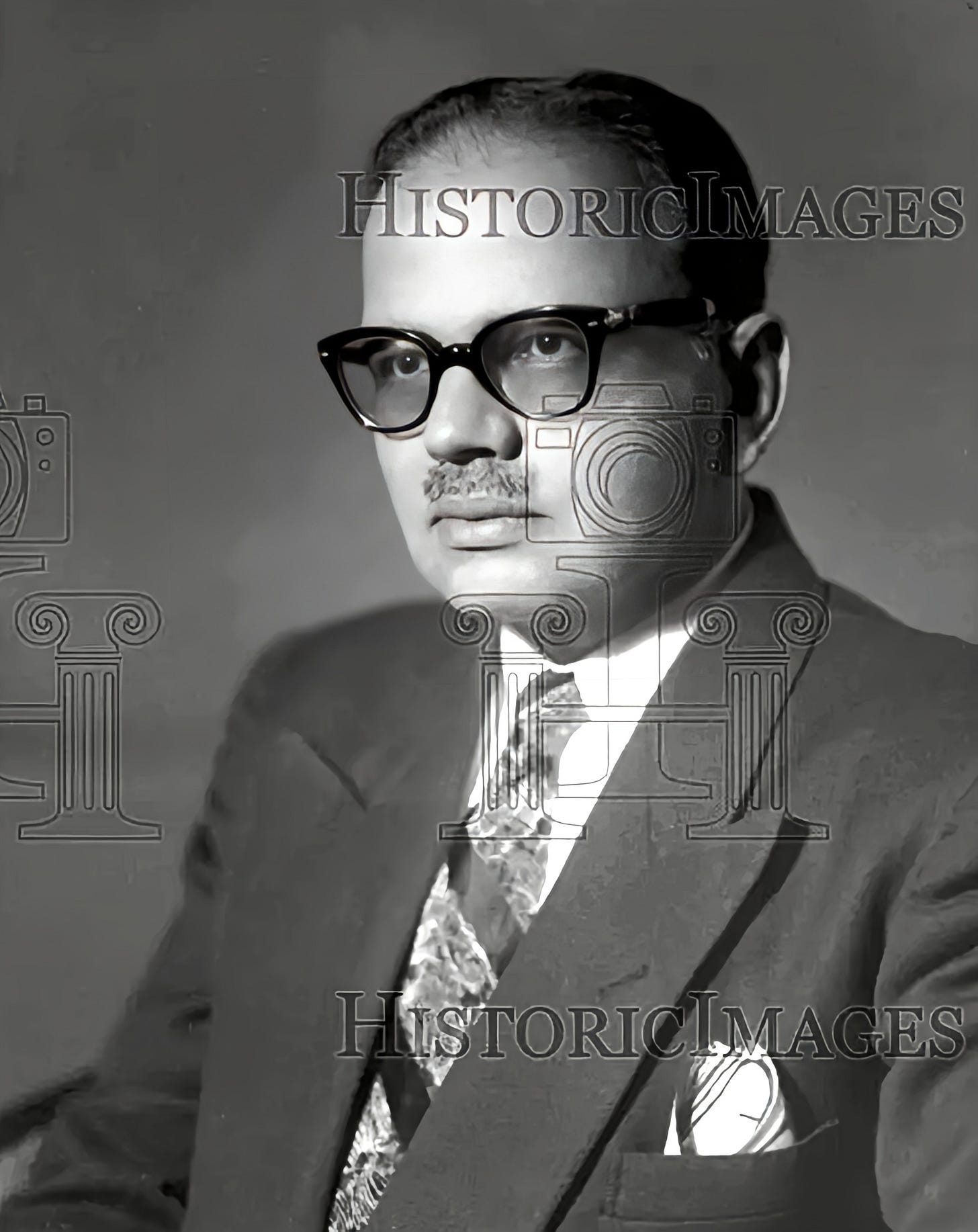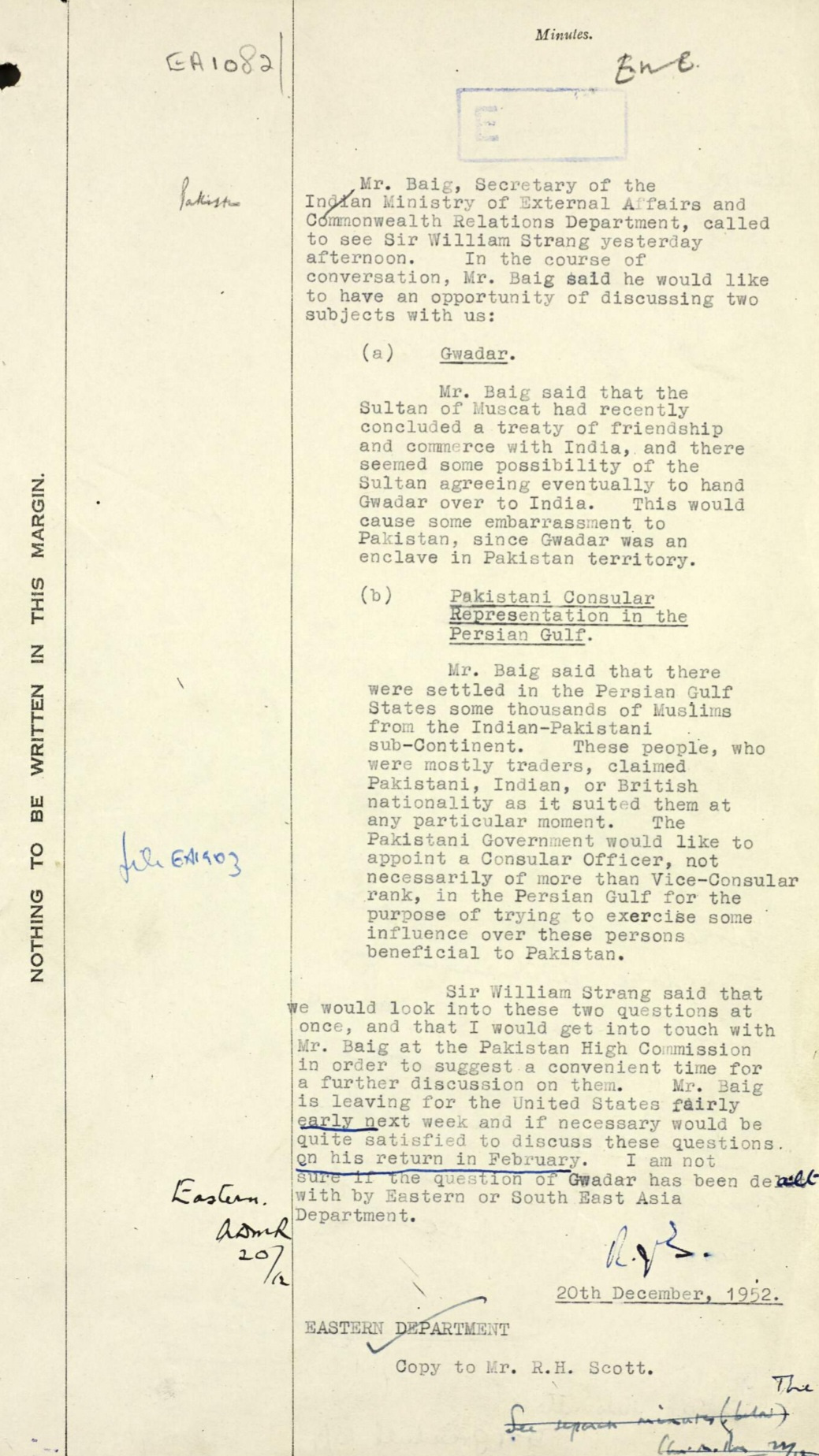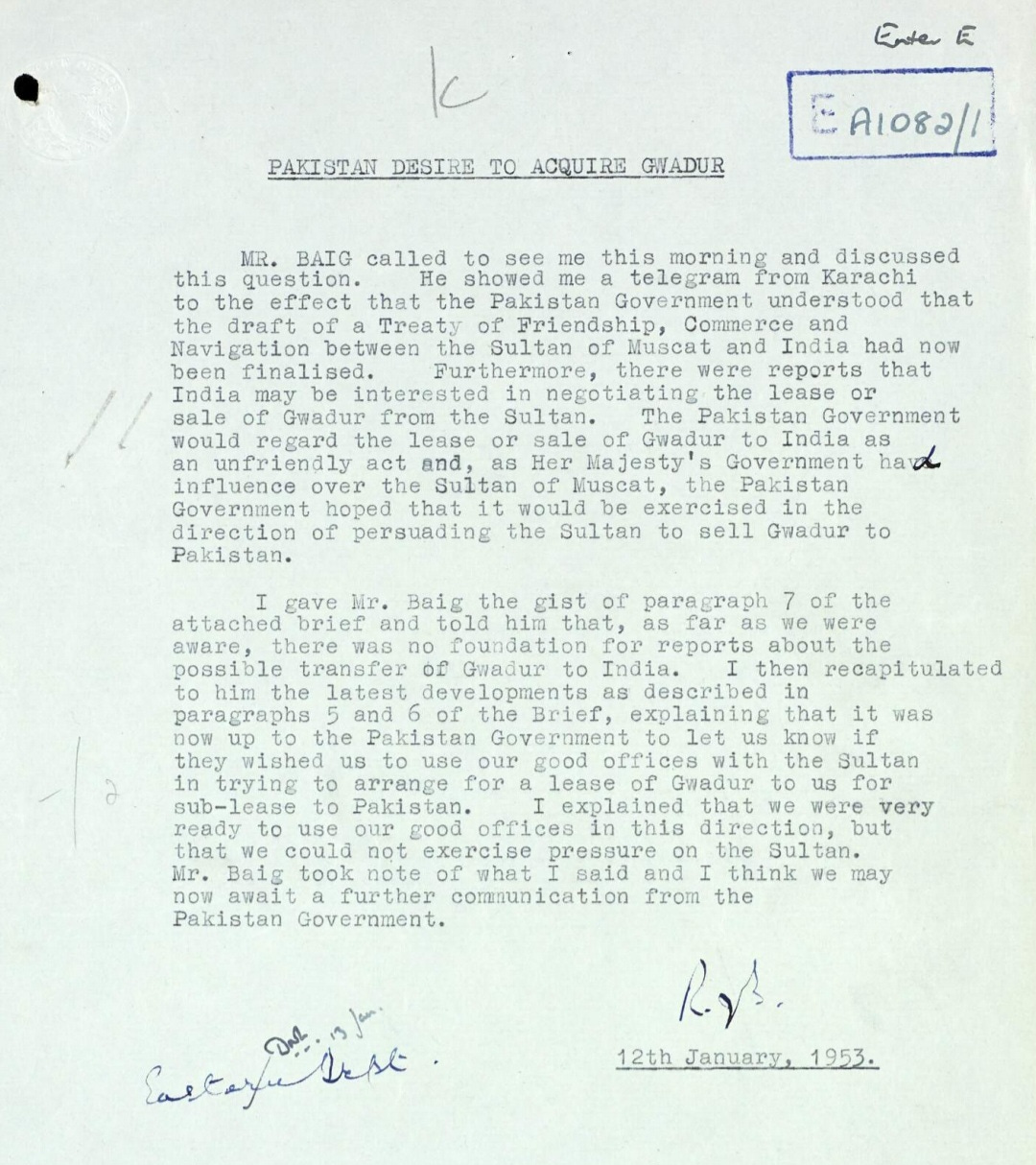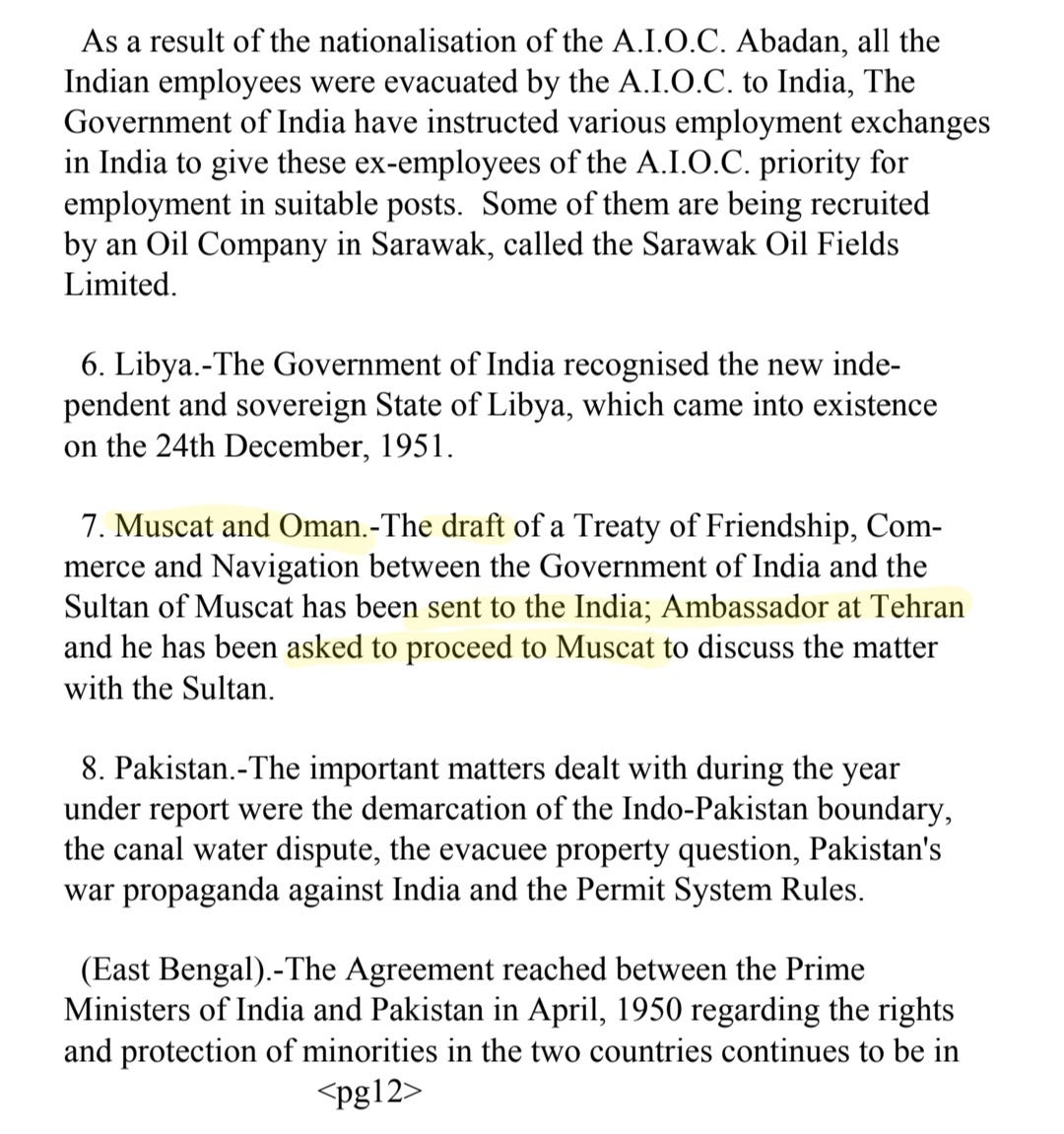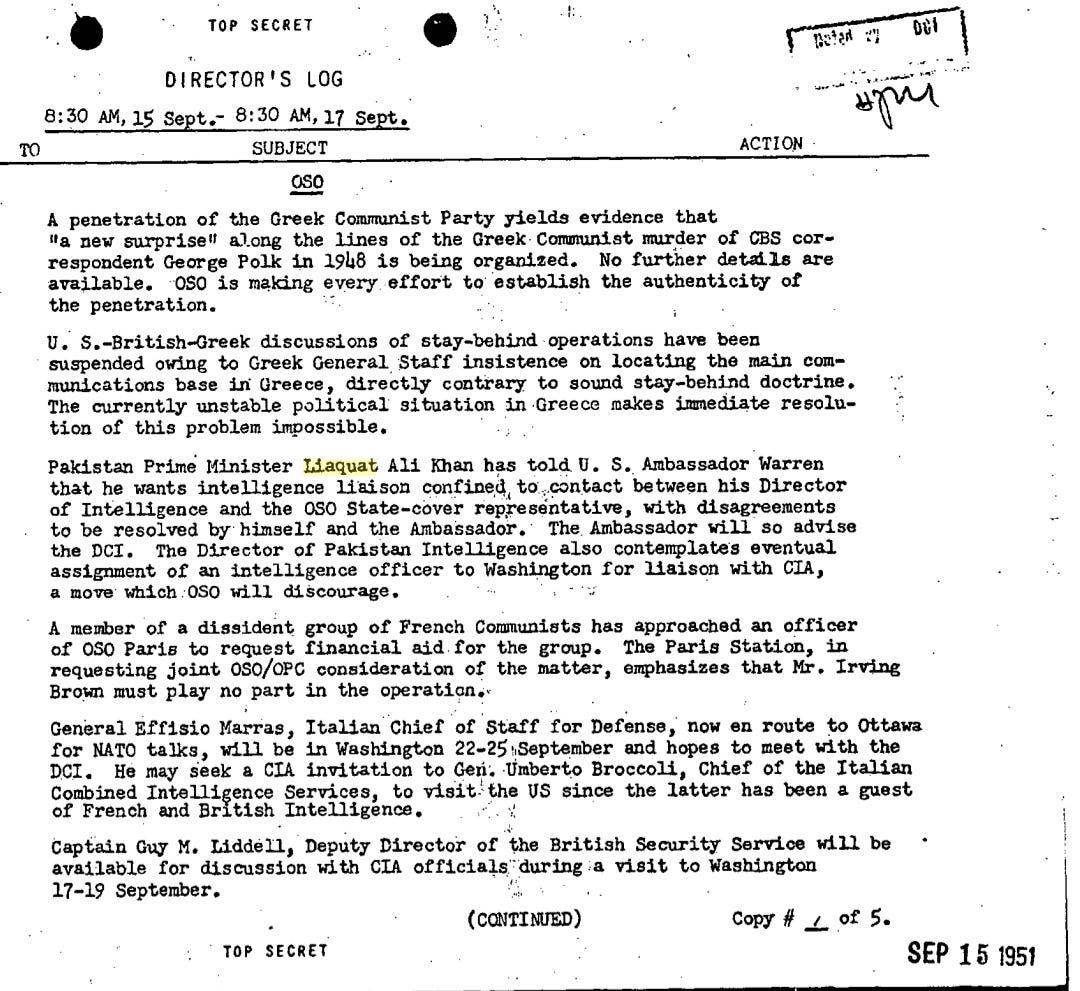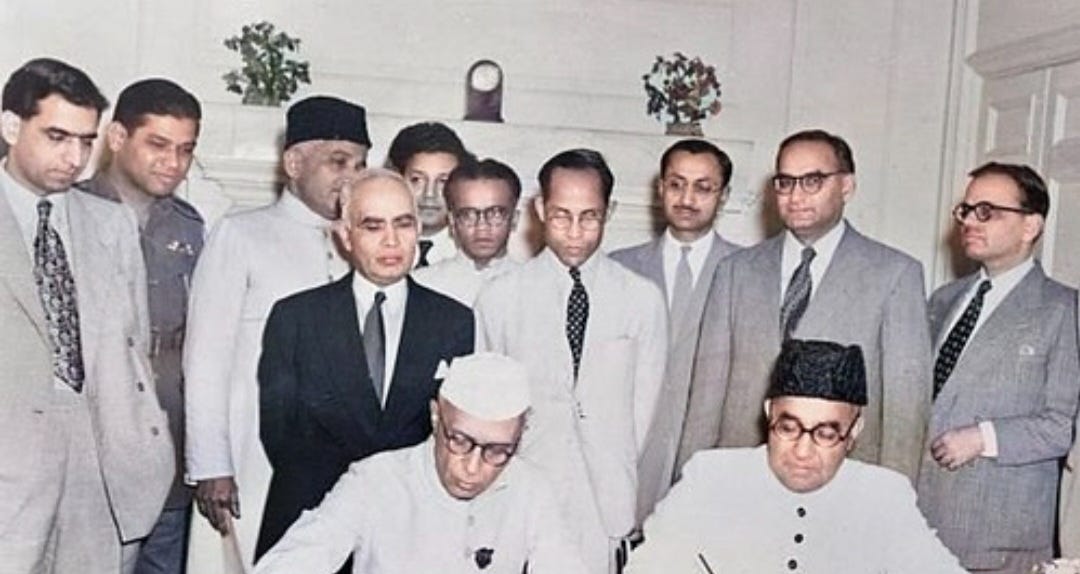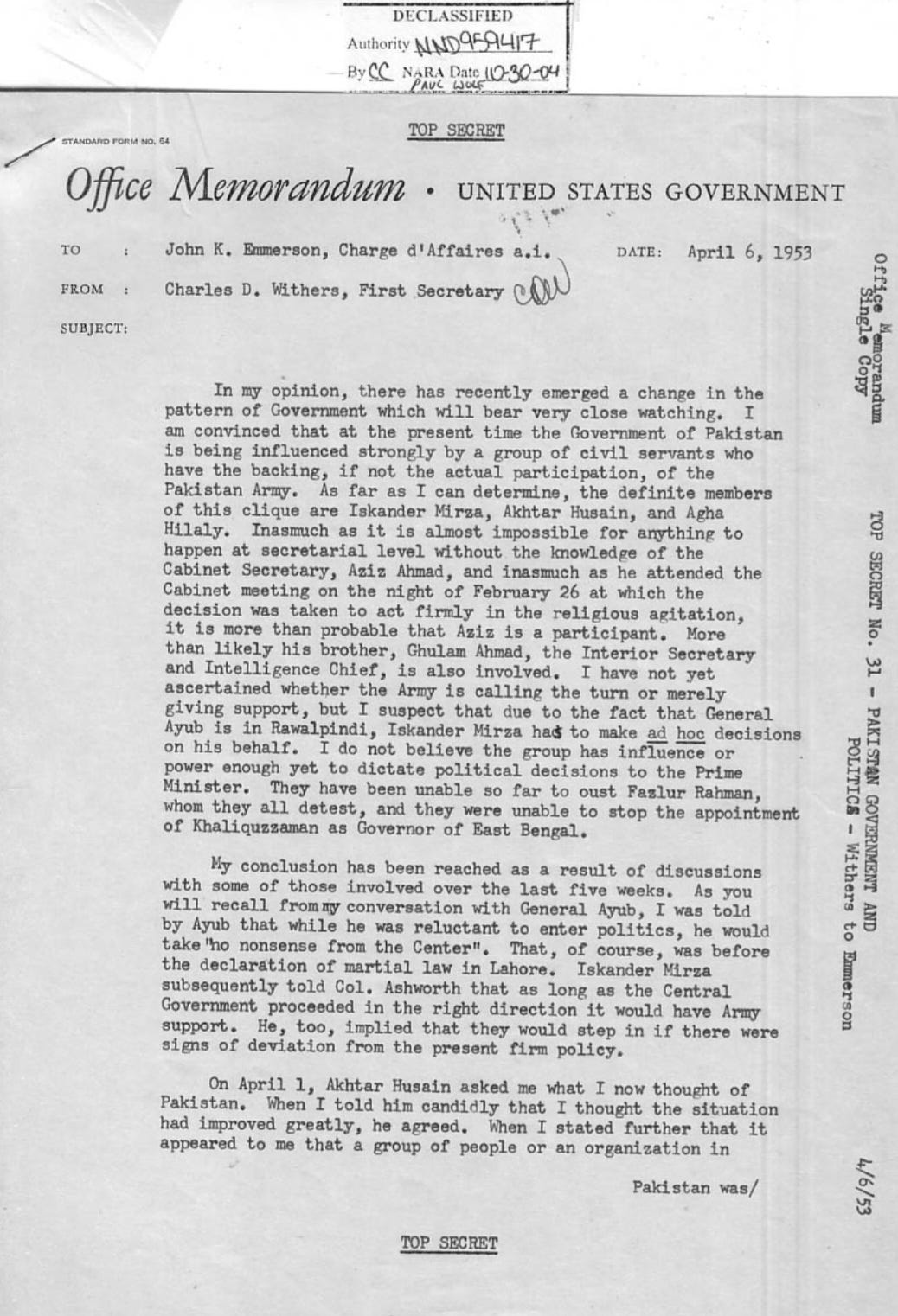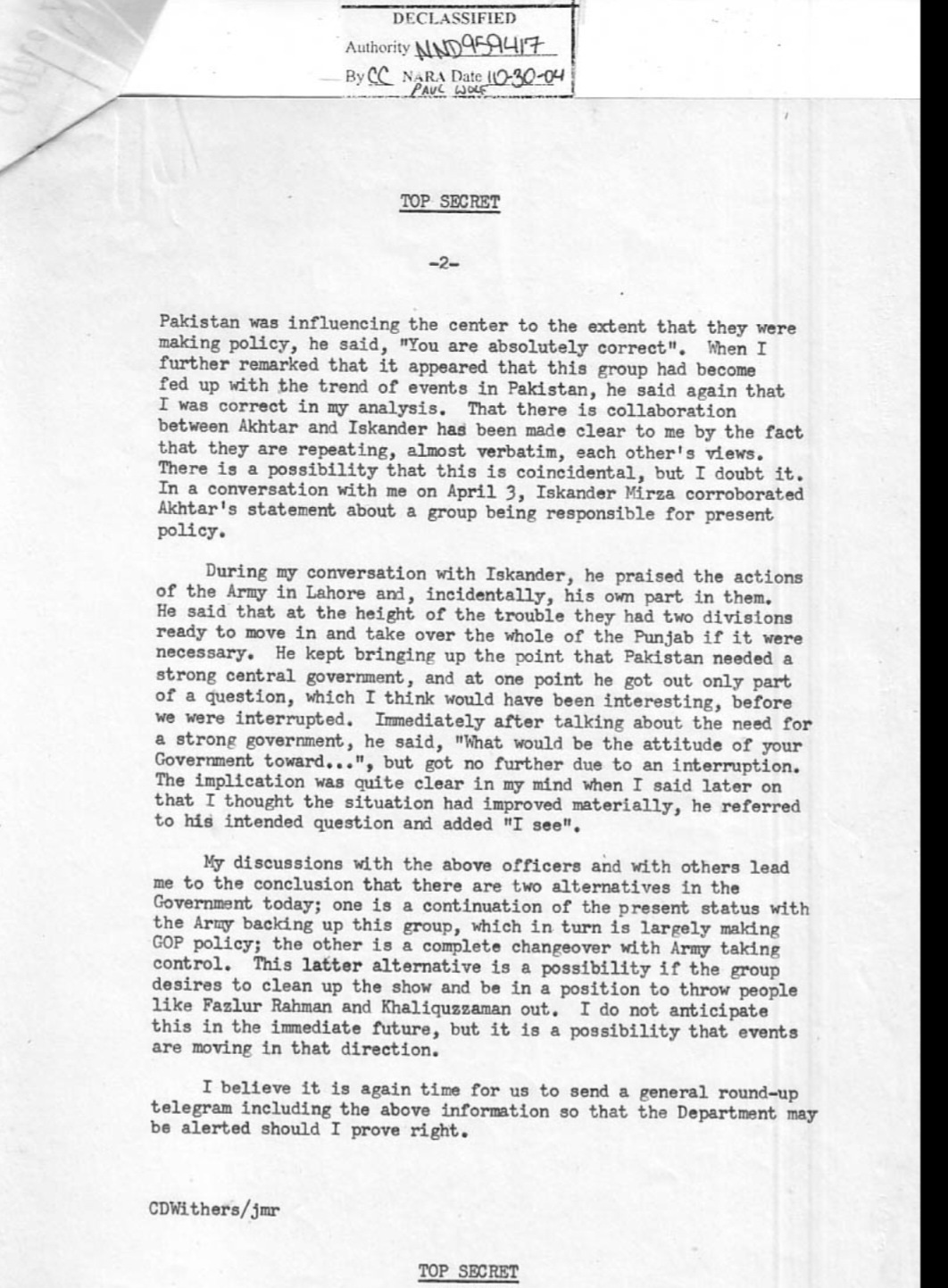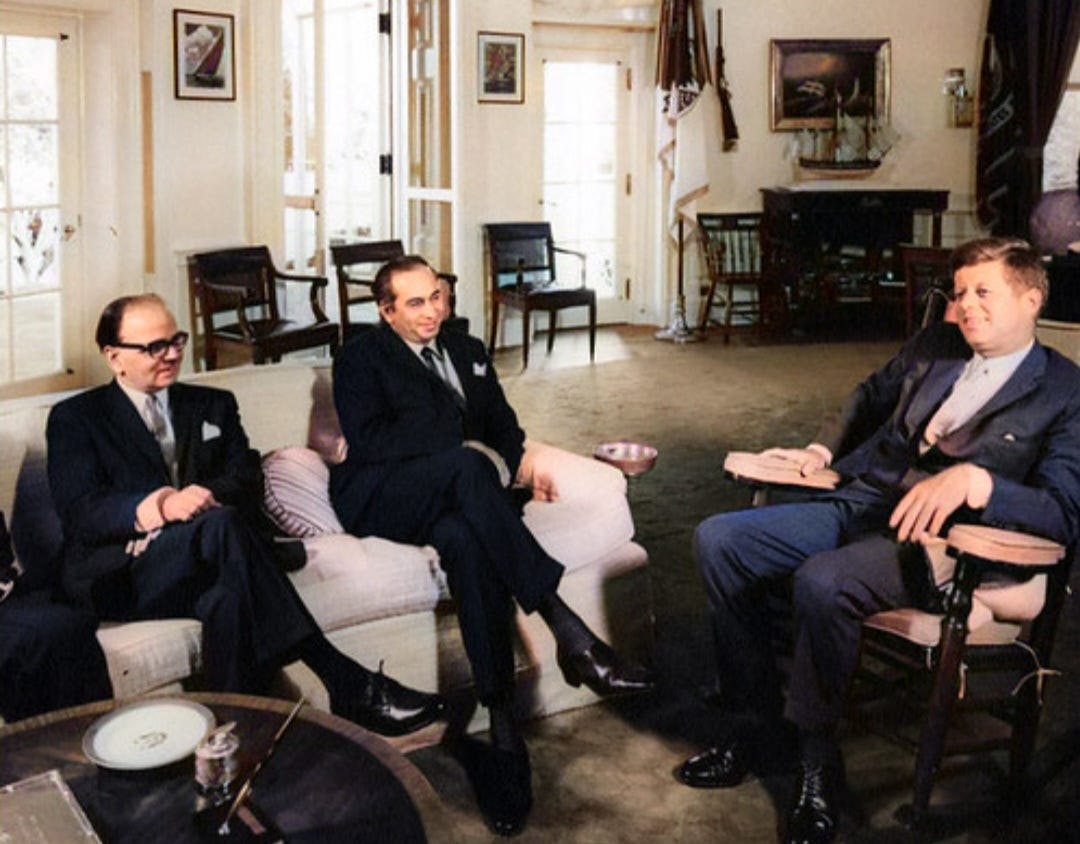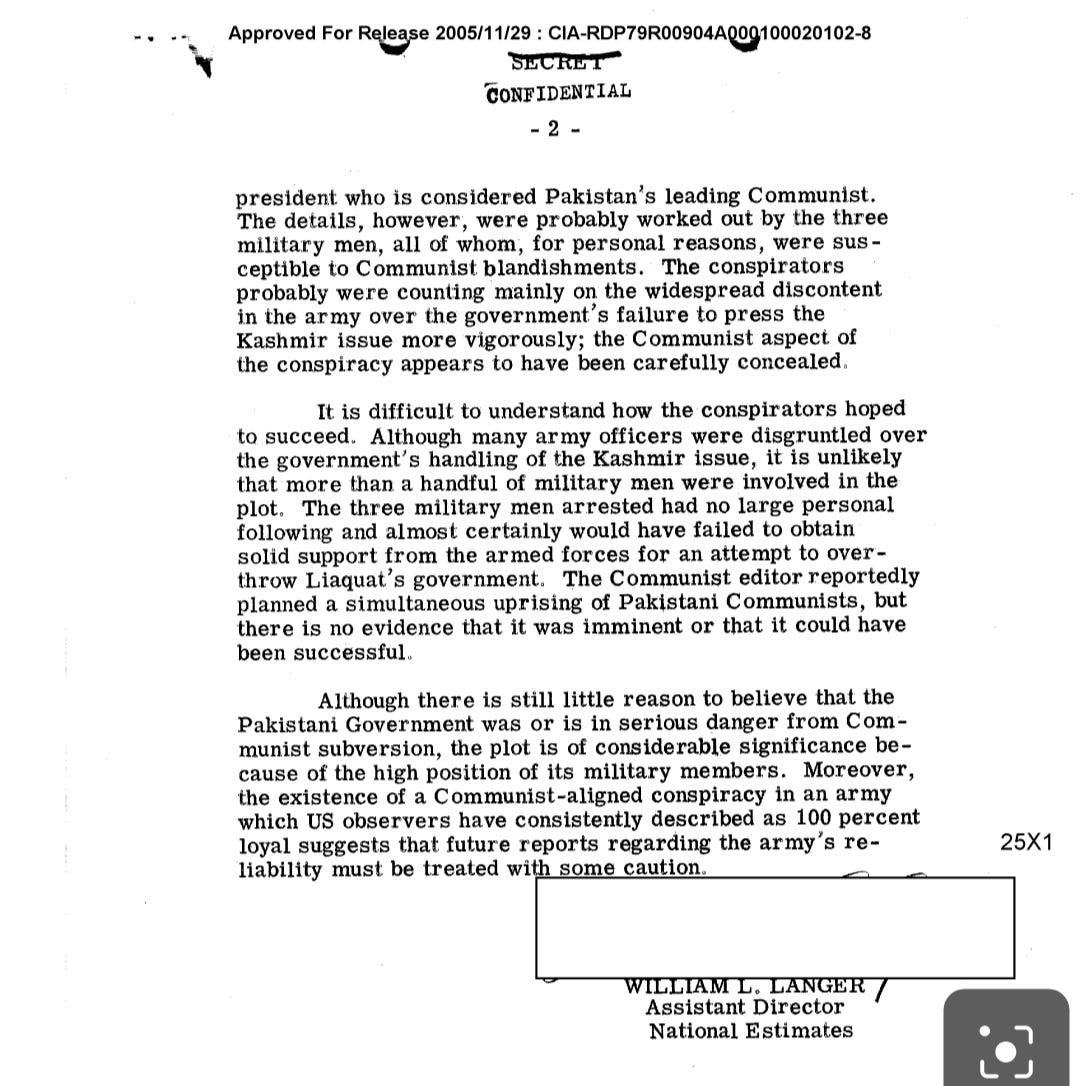Ghulam Ahmed
Pakistan's first IB Chief and later Ambassador to the US
Ghulam Ahmed, popularly referred to as ‘G. Ahmed’, was commissioned as an officer in the Indian Police (IP) during British colonial rule in the Indian Subcontinent, which operated under the Home Department. He hailed from Amritsar, Indian Punjab.
His brother Aziz Ahmed was also a member of imperial British government, commissioned into the Indian Civil Service (ICS). He would go on to lead erstwhile East Pakistan as its first Chief Secretary, Foreign Secretary of Pakistan, Cabinet Secretary to his good friend and Martial Law dictator General Ayub Khan and then Ambassador to the US.
Ghulam Ahmed had a brief stint in regular police duties, particularly in the Criminal Investigation Department (CID) of pre-partition Punjab before he was seconded to the headquarters of pre-partition Intelligence Bureau (IB), known as Delhi Intelligence Bureau (DIB).
During his DIB career, Ahmed prepared assessments on the activities and statements of different politicians, particularly those who were deemed sympathetic to the Axis cause. The famous 23 March 1940 resolution, known as 'Pakistan Resolution' that was passed in Lahore to lay the foundation for a separate homeland for Indian Subcontinent's Muslims, were among the many landmark events which transpired during his Assistant Directorship of DIB, before he was promoted to Deputy Director.
In the final months leading up to partitition of the Indian Subcontinent, Ghulam Ahmed was just one of three Deputy Directors in DIB and was deputed to Italy as Trade Commissioner. During his absence, India's famous Home Ministry czar Sardar Vallabhbhai Patel handpicked a junior Assistant Superintendent of Police in Madras, T.G. Sanjeevi Pillai, to take the helm as first Director of independent India's IB in April 1947 through multiple out-of-turn promotions (who stayed in the post till 1950).
Upon his return from Italy, and perhaps early on the insistence of Pakistan's founder Muhammad Ali Jinnah, Ghulam Ahmed was appointed first chief of Pakistan's IB chief on 1 August 1947, thirteen days before the emergence of independent Pakistan; in effect, both Pillai and Ahmed were given leadership of respective countries' IBs before they came into being.
Ghulam Ahmed had proceeded to Italy before Sardar Patel's machinations to appoint his loyalist Pillai, hence the possible notion of communal distrust does not appear likely. However, even if Ahmed remained in India at the time, he would have reasonably turned down subordination to a junior officer. Erudite commentators within India occasionally published pieces questioning the wisdom of appointing Pillai and superseding multiple senior and experienced officers in the process.
Known Academic History: MA English from Government College, Lahore
Known Professional History:-
Assistant Deputy Inspector General (ADIG) in Punjab CID (mentioned in records of 1938 and 1939)
Assistant Director DIB, Home Department, Govt of India (1939-41)
Deputy Director (A), DIB, Home Department, Govt of India (1941 till March 1947)
Trade Commissioner to Italy (April 1947 till 31 July 1947)
Director IB, Government of Pakistan reporting to Prime Ministers Liaquat Ali Khan then Sir Khawaja Nazimuddin (1947-51); additional appointment as Adviser on Commonwealth Relations (1949-53) and additional appointment as Secretary of the Interior to the Cabinet of Prime Minister Sir Khawaja Nazimuddin (1951-53)
Secretary Information and Broadcasting then Secretary of the Ministry of States and Frontier Regions during two successive Cabinets of Prime Minister Mohammad Ali Bogra (1953-55)
Chairman of Water and Power Development Authority (WAPDA), West Pakistan during Prime Ministership of Feroz Khan Noon (1958)
Chairman of the Planning Commission during the Martial Law Cabinet of General Ayub Khan (1958-59)
Secretary of the Planning Commission during Martial Law Cabinet of President General Ayub Khan (1959-61)
Ambassador to the US during further two successive Martial Law Cabinets of President and self-proclaimed Field Marshal Ayub Khan (1960-63); interestingly, Ghulam Ahmed succeeded his own brother Aziz Ahmed to this post
Post-retirement Adviser on Police Reforms to Prime Minister Zulfiqar Ali Bhutto (1972)
Served under the following known DIB chiefs:-
Sir Denys Pilditch (1939-45)
Sir Norman Smith (1945-47)
Miscellaneous:-
As IB chief and Commonwealth Adviser, he was part of Pakistani delegation that oversaw Treaty on the Protection of Minorities or 'Delhi Pact' signed by Indian Prime Minister Jawaharlal Nehru and his Pakistani counterpart Liaquat Ali Khan (1950)
As Interior Secretary, he played a key role in urging Prime Minister Nazimuddin to restrain the members of his party from treating the state as their personal estate, abandon manipulating religious fundamentalists for short-term political gains and focus on policymaking; Nazimuddin ignored Ahmed (1952) which ultimately led to sectarian riots (1953) and the imposition of the country's first Martial Law
The Martial Law regime of President/ self-proclaimed Field Marshal Ayub Khan tasked Ghulam Ahmed to come up with recommendations covering a wide range of public sector reform issues, including government organisational structures, ministerial procedures and systems and mandated roles of departments and agencies (1960)
Examination of archived DIB notes and memos in Pakistani government service suggest that Ghulam Ahmed had an exceptionally objective approach toward intelligence assessments. His comments were free of prevalent communal bias, a trait which his brother Aziz Ahmed apparently did not share.
In December 1952 and January 1953, Pakistan's Permanent Foreign Secretary Mirza Osman Ali Baig visited London to discuss Gwadar's return to Pakistan with Sir William Strang (then Permanent Under Secretary of State for Foreign Affairs) and Sir James Bowker (then Under Secretary for the Middle East and North Africa). Baig made implicit references to contents of India's draft Treaty of Friendship, Commerce and Navigation with Oman that aimed to renew the original 1939 treaty.
Extracts from UK Foreign Office archives made available by the Arabian Gulf Digital Archive
It is worth noting that the treaty was formally signed later in March 1953, so its draft contents may have been restricted from public consumption prior to Cabinet and/ or parliamentary debate. Library records with India's Ministry of External Affairs (MEA) reveal that the draft was shared with Dr Tara Chand, then India's Ambassador Extraordinary and Plenipotentiary to Iran. Dr Tara Chand spent several days in Muscat to negotiate its terms.
Extract from MEA Report (1951-52)
It can be reasonably speculated that Baig's dash to London was based on intelligence (HUMINT or SIGINT) that was collected by Ghulam Ahmed-led IB.
Ghulam Ahmed laid the foundation of IB’s liaison with the CIA during the tenure of Director of Central Intelligence General Walter Bedell Smith (W.B. Smith). Per a declassified log entry from Smith, Ahmed was also apparently desirous of deputing a liaison officer at the Pakistani Embassy in Washington D.C. which was discouraged as a matter of internal policy by the Office of Special Operations (OSO).
Extract from DCI Smith’s logs indirectly referring to Ghulam Ahmed
It is also quite remarkable that a Pakistani spy chief would later be appointed as a diplomat, no less to a global power like the US. He served on the post during three successive American Presidencies: General (R) Dwight D. Eisenhower, John F. Kennedy and Lyndon B. Johnson.
In effect, he was Martial Law dictator President/ self-proclaimed Field Marshal Ayub Khan's key liaison officer with the Americans.
Colorised photo: IB chief and Commonwealth Adviser Ghulam Ahmed (extreme right) among witnesses to the Delhi Pact (8 April 1950). Oddly, his brother Aziz Ahmed (then Chief Secretary East Pakistan, extreme left) was also present on the occasion
Declassified top secret office memo from the US Embassy in Karachi. Among other things, it reveals that Ghulam Ahmed continued as IB chief even after appointment as Interior Secretary (6 April 1953)
Colorised photo: Ambassador Ghulam Ahmed (left) seated beside Prime Minister Zulfiqar Ali Bhutto (centre) in a meeting with US President John F. Kennedy (4 October 1963)
Ghulam Ahmed’s understanding with Ayub Khan would appear rather ironic, because as IB chief he must have played a leading role in uncovering the botched coup attempt to overthrow Prime Minister liaquat Ali Khan in 1951, known as the infamous ‘Rawalpindi Conspiracy’. A memo prepared for DCI Smith adds that a small group of Pakistani Armed Forces officers led by Major General Akbar Khan conspired with pro-Soviet Communists to bring about a military dictatorship against what they perceived was a government that failed to wrest Kashmir and considered relentlessly sympathetic to the ‘Anglo-American bloc’.
Declassified memo on Rawalpindi Conspiracy of 1951 prepared for DCI Smith (23 March 1951)
References
US House of Representatives - Congressional Record, Government of the United States of America, https://www.govinfo.gov/content/pkg/GPO-CRECB-1966-pt5/pdf/GPO-CRECB-1966-pt5-8.pdf
Warren I. Cohen, Nancy Bernkopf Tucker, 'Lyndon Johnson Confronts the World: American Foreign Policy 1963-1968'
Dawn Wire Service, Issue 01-19, Week Ending 18 May 1995, https://asianstudies.github.io/area-studies/SouthAsia/SAserials/Dawn/1995/18My95.html
Photo archives of Dr Ghulam Nabi Kazi, https://www.flickr.com/photos/pimu/albums/72157685279851673/
The London Gazette (Supplement), 28 May 1943, pp 2417-2453
Tom Griffin, 'Delhi Intelligence Bureau 1888-1947', Tom Griffin on Intelligence History, https://open.substack.com/pub/intelligencehistory/p/delhi-intelligence-bureau-1888-1947
The Indian Police Journal, Oct-Dec 2012 Vol. LIX No. 4, https://web.archive.org/web/20130816020917/http://www.bprd.nic.in/writereaddata/mainlinkFile/File1052.pdf
Ardeshir Cowasjee, 'In our beginning is our end', Dawn, https://www.dawn.com/news/833275/in-our-beginning-is-our-end
Ilhan Niaz, 'Pakistan's Briefcase Warriors', https://www.foreignaffairs.com/articles/pakistan/2012-06-13/pakistans-briefcase-warriors
Syed Rizwan Mehboob, 'Looking back', The News on Sunday, https://www.thenews.com.pk/tns/detail/566433-looking-back-4
Lawrence Ziring and Robert LaPorte Jr., 'The Pakistan Bureaucracy: Two Views', Asian Survey, Vol. 14, No. 12 (Dec 1974), pp. 1086-1103
Foreign Relations 1961-1963, South Asia, Office of the Historian, US Department of State, https://2001-2009.state.gov/r/pa/ho/frus/kennedyjf/46453.htm
Akshaya Kumar Sahoo, 'PM Modi cites IB letter, pays tribute to Biju Patnaik, The Asian Age, https://www.asianage.com/india/all-india/060320/pm-modi-cites-ib-letter-pays-tribute-to-biju-patnaik.html
Bipan Chandra, Visalakhi Menon, Salil Misra, 'Towards Freedom: Documents on the Movement for Independence in India 1942 - Part 1'
Enclosure to the letter from H.D. Craik, Governor, Punjab to Victor Hope, 2nd Marquess of Linlithgow, Viceroy, dated 3 January 1939, Linlithgow Papers, Mss. Eur. F. 125/88
Ghulam Ahmed's memos in 1952 and 1953, File 50/CF/53, Cabinet Files, Government of Pakistan
Special Report by Punjab CID dated 11 July 1939. File (Home Political) 92/39; AFM: Vol. 466, pp. 10–11 (Secret Memorandum G. Ahmed 4-8-39)
The India Office and Burma Office List 1940, https://archive.org/download/in.ernet.dli.2015.208688/2015.208688.The-Indian.pdf
Durga Das, 'Sardar Patel's Correspondence 1945-50 Volume V', First Edition
T.V. Rajeswar, 'India: The Crucial Years', First Edition
Director’s Log, Central Intelligence Agency, https://www.cia.gov/readingroom/docs/1951-09-01.pdf
‘Plot to Overthrow the Pakistani Government’, Central Intelligence History, https://www.cia.gov/readingroom/docs/CIA-RDP79R00904A000100020102-8.pdf
Top Secret Office Memorandum of Karachi Embassy, 16 April 1953, https://web.archive.org/web/20050104104604/http://icdc.com/~paulwolf/pakistan/mirza6april1953.htm
Report of the Ministry of External Affairs, 1951-52, Government of India, https://mealib.nic.in/?pdf2478?000


